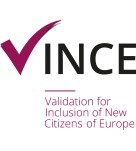 Validation of non-formal and informal learning is not a high political priority in Liechtenstein, however, within the National Educational Strategy 2020, Liechtenstein aims, within further education and lifelong learning, to promote validation of prior learning. Validation has been developed in the VET as well as HE sectors and due to small size of the country the validation is oriented mainly towards the approach in Switzerland. Validation at HE level is currently mainly used for access and admission to higher education programmes and for gaining credits on the basis of prior learning or work experience.
Validation of non-formal and informal learning is not a high political priority in Liechtenstein, however, within the National Educational Strategy 2020, Liechtenstein aims, within further education and lifelong learning, to promote validation of prior learning. Validation has been developed in the VET as well as HE sectors and due to small size of the country the validation is oriented mainly towards the approach in Switzerland. Validation at HE level is currently mainly used for access and admission to higher education programmes and for gaining credits on the basis of prior learning or work experience.
A notable development in last years has been the elaboration of the National Qualifications Framework, referencing the EQF, which integrates the qualification framework for HE sector (NQF-HS). This framework currently only encompasses formal qualifications, but there are plans and possibilities to include the outcomes of non-formal and informal learning in the future. Other developments include discussions with HE institutions on improvement of portfolio-based validation procedure and on finding synergies with neighbouring countries (e.g. to redirect validation candidates to neighbouring countries to take exams for validating competences and have them recognised in Liechtenstein).
There are no specific policies, projects or initiatives in Liechtenstein directed towards validation of prior learning of specific vulnerable groups, such as immigrants and refugees, but educational institutions, also at HE level, do take into account the special situation of refugees within the process of validation.
VPL in Higher Education
The development of the national qualifications framework for higher education (NQFL-HS) in 2011 brought opportunities for validation of prior learning achieved outside HE system.
Validation of prior learning in higher education is used mainly for granting admission to higher education studies without a Matura examination (admission sur dossier), for allowing permeability from higher vocational education to further education study programmes and for recognition of programme achievements resulting in awarding of ECTS points. Up to one-sixth of total workload expressed in credit points can be recognised through validation. At HE level, validation cannot be used to obtain a full qualification/diploma.
HE institutions are required to give prospective students the opportunity to get access to HE programmes through validation of prior learning. HE institutions are free to choose adequate approaches towards the validation of prior learning, as long as the approaches are fair and undiscriminating. Admission to HE programmes without Matura is based on a portfolio, where the applicants showcase the courses they attended and their professional competences in line with the curricula of a given programme.
Validation in the Labour Market
Validation in Liechtenstein, in VET as well as in HE is more or less directed towards certification of a formal qualification. Employers are most interested in validation of prior acquired competences of their employees, most of whom are non-nationals, but this is mostly limited to people with low or medium level competences (e.g. in construction, cleaning), and labour market actors (employers, trade unions, employment agencies) do not play as important role at the HE level. Skills audits and guidance are a mandatory phase in the validation process in initial vocational education and training, but not at HE level and there is no specific right for unemployed people to undertake a skills audit.
Validation in the Third Sector
No concrete data could be found regarding involvement of the third sector in validation issues or validation activities. There is some awareness among participants in this sector of non-formal and informal learning through honorary posts and voluntary periods of social activities.
Funding of VPL
In higher education, expenses for validation procedures for the purpose of awarding ECTS credits or for admission sur dossier are covered by higher education institutions themselves and/or by candidates through the fees charged by the higher education institutions. This is in contrast to validation of vocational qualifications, where a large part of validation expenses are covered by the Office for Vocational Education and Vocational Counselling. The fee for admission to HE sur dossier tends to be similar to the fee for admission through the regular admission procedure.
References
- 2016 update to the European Inventory on Validation of Non-formal and Informal Learning, Country Report Liechtenstein
- 2010 update to the European Inventory on Validation of Non-formal and Informal Learning, Country Report Liechtenstein
- Eurydice (2016): Liechtenstein – Validation of Non-formal and Informal Learning
- National Qualifications Framework of Liechtenstein
- Law on Higher Education
- Regulation of Higher Education 2011b

